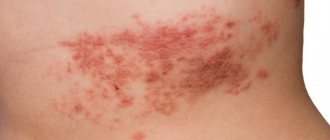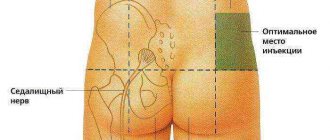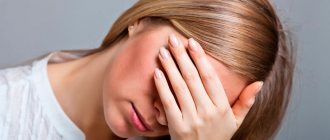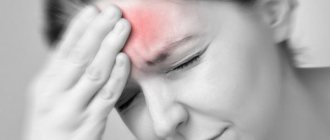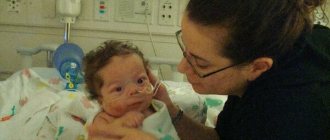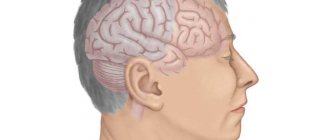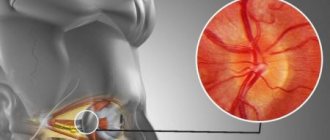Many people are concerned about the question: is there a cough due to nervousness? A cough is not always an indicator of respiratory disease. Psychosomatic disorders are also accompanied by coughing, which, with systematic emotional overload, develops into a full-fledged debilitating cough. A person’s well-being deteriorates, the usual way of life changes, and a feeling of discomfort and dissatisfaction appears. Diagnosis and further treatment of nervous cough is carried out by a psychotherapist, but only after excluding the presence of viral and infectious diseases in the body.
How does diarrhea develop?
Intestinal upset can be caused by various reasons. The physiological purpose of diarrhea is to cleanse the body of pathogens: toxins, bacteria, viruses. Depending on the disease that they provoke, one or another diarrhea occurs.
According to the mechanism of development, hypo- and hyperkinetic, hypersecretory, hyperexudative, osmolar diarrhea are distinguished. Intestinal disorders due to stress are classified as functional hyperkinetic type. In other words, the disease is not caused by pathogens, but by the malfunction of the organ itself.
Could diarrhea be caused by nerves? Yes, if a person is under prolonged stress, stress hormones are released into the blood, which accelerate all processes, including metabolism and digestion. From the parasympathetic nervous system, impulses reach the intestines and cause it to contract intensively. As a result, a person experiences an urgent need to empty the intestines and does this more often than expected (3-5 times a day), mainly immediately after eating.
Psychosomatics: why all diseases are caused by nerves
There is a direction in medical psychology that studies the influence of psychological factors (nerves) on the body. It's called psychosomatics. The founder of the direction was the German scientist Johann Heinroth. His theory is based on the fact that the cause of many somatic diseases is not a physical or organic action, but a person’s emotional state: depression, stress, anxiety. According to his theory, almost all diseases arise from nerves.
Sick people are almost always nervous, especially those who suffer from chronic illnesses. And as a result, it turns out that the origins of all health problems lie in our heads. This is what those who study the influence of nerves on the body say. It's all psychosomatics.
Effect of nerves on the body
Let's say that you are depressed about something and rarely smile. And this has already been going on for several weeks. As a result, your psyche reacts negatively to everything that happens around you, and there is no cheerfulness. As a result, the body stops functioning correctly, it is also depressed. Due to constant tension, muscle blocks arise, which leads to the appearance of diseases. This is how diseases arise due to nerves and emotions.
Almost all chronic diseases of internal organs (like tumors) can be caused by constant stress, dissatisfaction, and a state of resentment towards someone, including oneself. People who engage in self-criticism have a tendency to develop erosions and ulcers. Therefore, dealing with stress and forgiving all grievances is very important.
What diseases are caused by nerves? According to the theories of scientists who believe in psychosomatics, those organs that are the weakest in a person come under attack.
Emotions and the subconscious
Some researchers who believe in psychosomatics argue that illness occurs subconsciously. The state of the body is directly related to the patient’s emotions. If your legs hurt, it means that a person is tired of constantly running somewhere, and if his hearing is lost, then he doesn’t want to hear anything. In this way, as if avoiding some problems, the body tries to make its life more comfortable. And you don’t even realize that this could all be due to nerves.
Agree that even an ordinary conflict entails headaches or heartache. Feeling discomfort, a person no longer wants to quarrel anymore; on the contrary, he simply rests and does not communicate with anyone. He hides in his shell, hiding behind his malaise. Of course, this is not done on purpose; the patient himself may not even suspect anything.
Often, not finding help from a regular doctor, they turn to church or a psychologist. According to statistics, many people change their lifestyle and themselves, finding support and understanding. Diseases recede or become mild. Of course, this only applies to somatic ailments that can arise due to nerves (these are problems with blood pressure, heart, headaches, ulcers, gastritis and other diseases that are closely related to the state of the nervous system).
When turning to a stranger for help, you need to remember that he is not a fairy with a magic wand that will easily remove all problems. By relying entirely on him, you can worsen your condition even more. The main medicine is inside you. And no one can put your nervous system in order if you don’t want it yourself.
find out
How to have health: physical, mental and spiritual. Doctor's advice
How is nervous disorder related to diarrhea?
The work of internal organs is closely interconnected. Nerve impulses from the central nervous system enter the skeletal muscles, smooth muscles of the intestines, and the heart and transmit commands to them. A malfunction of the brain leads to various functional disorders. It’s not for nothing that they say that all diseases are caused by nerves. Thus, diarrhea is often observed with:
- VSD (vegetative-vascular dystonia);
- PMS (premenstrual syndrome);
- psychoses and neuroses;
- panic attacks;
- depressive disorder.
If diarrhea occurs from nerves, symptoms are limited to abdominal pain, frequent urge to defecate, and bowel movements 3-5 times a day. The stool is usually formed and has a normal smell and color. There may be a slight presence of mucus.
In addition to nervous disorders, patients with IBS are often diagnosed with other diseases of the gastrointestinal tract: gastritis, biliary dyskinesia, pancreatitis, dysbiosis, reflux, etc. Hereditary factors, eating habits and lifestyle in general play a significant role in the formation of nervous diarrhea.
Psychosomatics: pediculosis. Can lice appear due to nervous conditions - Psychology
Pediculosis is a parasitic disease of human skin and hair, the causative agent of which is a louse.
Lice are parasites that can only live near humans. There are three types: head, pubic, underwear (clothes).
Symptoms: the presence of parasites on the patient’s skin and clothes, the presence of nits on hair and underwear, skin inflamed due to bites, endless itching, skin rash or specific spots for pubic and body lice, transition to chronic dermatitis.
Causes of lice infection:
- close contact (playing, wrestling, kissing, hugging, sexual intercourse),
- using only hygiene and hair care products,
- hairdressing tool,
- wearing one headdress,
- sleeping on an infected pillow,
- swimming in public places,
- contaminated clothing, bedding.
Risk factors: being in kindergartens, schools, bathhouses, swimming pools, hospitals, trains, etc.
Is it possible for pediculosis to be caused by nerves?
Dermatologists and parasitologists say that lice cannot appear on nerves. Research also did not reveal the psychosomatic basis of pediculosis and did not confirm assumptions about the possibility of pediculosis being caused by nerves.
But at the same time, parasitological specialists do not reject the fact that the skin of a person who is in strong emotional arousal is vulnerable to parasites.
This is explained by the fact that lice, like all small insects, are usually well oriented by smell. And a person who is in a state of stress, due to the fact that his sweat glands are actively working, emits a special smell. This strong smell can attract parasites.
However, there is no direct connection between stress and the appearance of parasites, since lice cannot appear spontaneously, out of nowhere, without contact with the host.
The lack of an answer to this question suggests that there are exceptions to the rules. This assumption of ours is confirmed by materials from famous authors on psychosomatics.
Psychological causes of lice
Louise Hay believes that the reasons for the appearance of parasites are that a person cedes power to others and allows them to take over.
Psychologist Liz Burbo argues that a person suffering from parasites allows others to parasitize him - in terms of thoughts and lifestyle.
Liz Burbo writes that children often suffer from parasites because they are too influenced by the adult world: they feel obliged to pretend, that is, not be themselves, in order to deserve the love and attention of adults. The psychologist is sure that the more a person allows himself to be parasitized, the more importance he attaches to insignificant details
These little things fill his mind and take up too much space in his life.
The psychologist is sure that the more a person allows himself to be parasitized, the more importance he attaches to insignificant details. These little things fill his consciousness and take up too much space in his life.
Liz Burbo sees another reason for head lice is that a person forces himself to be another person, because he believes that this can earn someone’s love.
Dr. V. Sinelnikov explains lice by saying that a person allows others to “mess around” in his head and in his thoughts, to interfere in his thoughts and in his life.
Ways to Heal
It is known that everything that happens to a specific person (or his child) has reasons associated specifically with this person. Hence, according to psychosomatics, the occurrence of any disease in a given person is intended to make him think about the presence of any internal or external unresolved conflicts.
Pediculosis as a parasitic disease in this case is also no exception and signals that something is wrong. The clue here is the word “parasitic.” That is, we are dealing with a problem related to the fact that someone is parasitizing on you, “sucking your blood,” thoughts, ideas, strength, energy, etc. But, with your tacit consent.
From here the path to healing becomes clear: express your disagreement (behavior, word, attitude, deed, etc.), protest, refusal of such an attitude towards yourself.
Another point that a person suffering from head lice should pay attention to: get rid of “parasitic” thoughts in your head. There are obsessive but useless thoughts and ideas that torment you from the inside, “itch” in your head, giving you no rest and depleting your mental strength.
Various methods and techniques for clearing the mind can help with this (for example, tracking your thoughts, constantly asking the question “What am I thinking about now?”, consciously stopping your thoughts, directing your thoughts in a useful direction, meditation, etc.).
I wish you to be the master of your thoughts and your life!
Lada
Treatment
Diarrhea that occurs for the first time due to nervousness is treated symptomatically. Also, diarrhea 3-5 times a year does not require medical intervention, which goes away safely within 2 days. With frequent and prolonged disorders, the question arises of making a diagnosis of irritable bowel syndrome.
A comprehensive examination is carried out, which includes a coprogram, bacterial examination of stool, stool tests for worm eggs, ultrasound of the abdominal cavity, general and biochemical blood tests, endoscopy, etc. After the verdict, the doctor selects therapy.
How to treat diarrhea with IBS:
- Lifestyle correction. It is necessary to get rid of bad habits (especially from drinking alcoholic beverages) and normalize your diet. To reduce the load on the nervous system, 8 hours of sleep, rest for at least 3 hours a day, as well as moderate physical activity, walking in the fresh air daily for 1 hour are recommended.
- Drug course of treatment. May include a different set of drugs. Prescriptions are made by the doctor based on the results of tests, studies, and associated diagnoses identified. The standard regimen includes taking drugs that slow down intestinal motility, tricyclic antidepressants, and antispasmodics.
- Psychotherapy. All types of techniques are used: hypnosis, autogenic training (muscle relaxation, self-education), behavioral psychotherapy and others.
Nervous diarrhea is treated with sedatives, antispasmodics, and antidiarrheal drugs. But first of all, a person must learn self-control. The problem will disappear if you maintain a stable emotional state, do not give in to anxiety, and avoid stress.
How to treat diarrhea with IBS:
- Antidepressants: Amitriptyline, Fevarin, Imipramine. Prozac, Tranxen, Eglonil (give a noticeable improvement in 61-89% of patients).
- Sedatives that are available without a prescription: Afobazol, Novo-passit, Valerian, Motherwort.
- Antispasmodics (eliminate abdominal pain): No-shpa, Spasmomen, Dicetel, Hyoscyamine.
- Drugs that slow down intestinal motility: Loperamide, Diara, Imodium, Lopedium.
- 5-HT3 serotonin receptor antagonist: Alosetron (used in extremely severe degrees of IBS).
Additionally, sorbents Smecta, Neosmectin, Polysorb, probiotics Hilak, Acipol, Linex, vitamin and mineral supplements can be prescribed. If a helminthic infestation is detected, treatment is carried out with Vormex and other anthelmintic drugs. With concomitant gastritis and peptic ulcers, the use of H2-histamine receptor blockers, proton pump inhibitors Ranitidine, Famotidine, Omeprazole is indicated. They increase stomach acidity and help treat diarrhea.
Treatment of neurogenic diarrhea
Diarrhea can happen at the wrong time. It is important to reduce the level of anxiety and increase stress resistance in the patient.
- If necessary, change jobs.
- Sports activities.
- Meditations.
- Doing what you love.
- Working with a psychologist.
- Taking sedative pills.
Supportive therapy includes medications:
- Sedatives. Calms the nervous system and reduces irritability. Popular drugs: Tincture of valerian, motherwort, Afobazol, Novopassit, Tenoten, Persen.
- Antidepressants. They help get rid of stress, stop worrying and being nervous. They help relax the intestinal muscles and slow down the frequency of going to the toilet. Tricyclic drugs: “Fluoroacyzin”, “Imizin”, “Amitriptyline”. Take the tablets before going to bed.
- Antidiarrheal drugs. “Imodium”, “Enterodes”, “Loperamide” are prescribed by a doctor when diagnosing severe diarrhea. The drugs affect the intestines and slow down peristalsis.
- Antispasmodics. The products help relax the intestinal muscles and normalize gastrointestinal motility. The substances relieve pain, relieve abdominal cramps and flatulence.
- For irritable bowel syndrome, the drugs “No-shpa”, “Halidor”, “Duspatalin” and “Papaverine” are taken.
- It will be necessary to restore the immune system through the use of probiotics and vitamin complexes to restore intestinal microflora and improve immunity.
Medications to relieve psychological diarrhea should be taken under the guidance of a doctor. If diarrhea is caused not by a stressful situation, but by organ diseases or poisoning, such therapy is dangerous to the patient’s health.
Diarrhea caused by strong nerves in an infant should not be treated without consulting a pediatrician.
Various reasons can cause fear in a child at the psychosomatic level. The nervous system is not yet stable; mild sedatives and antidiarrheal medications will be required. A decoction of rice and jelly will help eliminate the defect.
For older children, treatment of diarrhea is based on the use of soothing teas with lemon balm and mint. An additional drug to eliminate the symptomatic syndrome will be Enterofuril. The product effectively fights microbes that have entered the intestines and prevents the proliferation of pathogenic microorganisms.
It is important to restore emotional balance for the child, provide him with attention, warmth and care. You can talk and try to find out the reason that provoked the stressful situation.
Eating a balanced diet will help eliminate frequent visits to the toilet.
| Proper nutrition | It is undesirable to consume products |
| Rice and oatmeal porridge. | Legumes. |
| Porridge with an admixture of mucus to coat the intestines. | Do not eat chips or fried nuts. |
| Lean meats, chicken fillet. | Smoked, fried meat, fish. |
| Kissel based on lingonberries and currants. | Sweet dishes. |
| Stomach-strengthening fruits: banana, pomegranate, quince. | Fresh vegetables, fruits, sauerkraut. |
| Strong black tea. | Coffee, uzvar, kefir, grape juice. |
Avoid consuming low-quality, stale, canned foods that cause bloating, fermentation of food in the stomach, and diarrhea.
Divide meals into small portions 5-6 times a day. Products should be boiled in a double boiler. Eat food at room temperature.
Folk recipes for eliminating diarrhea due to nervousness:
- Bird cherry fruits have healing properties in the treatment of non-infectious diarrhea. You will need to pour 1 tbsp. berries 200 ml boiling water, boil for 20 minutes. Cool the broth and strain. The dose includes 100 ml 3 times a day.
- Chronic diarrhea can be eliminated with the help of cinquefoil, plantain, and knotweed leaves. Put 2 tbsp. herbs into a bowl and pour 400 ml of hot water, cover with a lid, leave for half an hour. Cool the infusion, strain, take 100 ml 4 times a day.
- A decoction of St. John's wort and yarrow is absolutely safe for health. 1 tbsp. Brew a mixture of herbs with 200 ml of water. Drink 3-4 times a day before meals.
- Finely chop the sea buckthorn leaves and add 200 ml of cold water. Cook the solution for 5 minutes over low heat. Cover the dish with a lid and leave for 30 minutes.
Comprehensive treatment of diarrhea due to stress, together with light physical activity and hobbies, will give positive results within a few days.
Diet
If diarrhea began due to nervousness, doctors prescribe treatment table No. 4. This helps improve digestion processes and prevents the development of inflammation. Gas formation in the intestines decreases, and the frequency of the urge to defecate decreases. Nutrition principles:
- limiting carbohydrates and fats in the diet;
- exclusion of hard-to-digest foods,
- refusal of food that causes putrefactive and fermentation processes;
- heat treatment: steaming, boiling, stewing;
- consistency of food: ground, liquid, puree;
- salts within 10 g;
- sugar no more than 40 g;
- number of meals per day 5-6 times every 3-4 hours.
Any diarrhea, including from nerves, does not tolerate disordered eating. Eating the wrong foods further irritates the intestines. Legumes, fatty and smoked foods, canned food, marinades, beets, prunes, pumpkin and other laxative products are strictly prohibited.
It is recommended to give preference to soft, pureed food with a neutral taste. Bitterness and pungency stimulate increased production of gastric juice and can worsen the disorder. What products should you choose:
- crackers, bagels, white bread;
- durum pasta;
- lean meat;
- fish: carp, perch, pike perch;
- boiled, stewed vegetables;
- baked fruits, fruit compotes and jelly;
- porridge with water: rice, buckwheat, semolina, oatmeal;
- boiled egg (1 per day);
- low-fat cottage cheese;
- weak green, black tea, weak grain coffee;
- juices diluted 1:2 or 1:3 with water, decoction of rosehip, bird cherry, currant;
- marshmallows, honey, marshmallows;
- slimy soups, lean on the second broth.
If you have a nervous bowel disorder, you need to eat strengthening foods, but without fanaticism. The diet should remain balanced. Menu example:
- Breakfast: rice porridge, boiled for 40 minutes, optionally with sugar and butter; weak sweet tea.
- Second breakfast: low-fat cottage cheese.
- Lunch: weak chicken broth, steamed cutlets with rice and veal, carrot puree, apple compote.
- Afternoon snack: crackers, unsweetened tea.
- Dinner: boiled buckwheat porridge, steamed fish cutlets, currant broth.
- Second dinner: jelly.
Traditional methods
- Herbal mixture to quickly stop diarrhea. Brew a glass of boiling water with 4 teaspoons of immortelle, 2 St. John's wort, 2 sage, 1 rhubarb root. After 40 minutes, strain. Take 50 ml three times a day before meals. You can brew immortelle separately (2 tablespoons of raw material per glass).
- Kissel for securing the chair. The most effective blueberry dish. Preparation: pour 300 ml of water over a handful of berries, bring to a boil over low heat, and simmer for another 5 minutes. Rub the blueberry mixture through a sieve. Return to heat. In a separate bowl, dilute a tablespoon of sugar and the same amount of starch with cold water. Pour into the broth in a thin stream, stirring constantly. In 3 minutes the jelly will be ready. The volume of 300 ml should be divided into four doses.
- Remedy for bear disease No. 1. It acts comprehensively, calms the nerves and normalizes digestion. Ingredients: calendula and chamomile flowers, mint, blueberry leaves, plantain, caraway seeds, calamus root, activated carbon tablets. Take everything in equal quantities and mix. Pour a tablespoon of the mixture into a glass of boiling water, wrap in a towel for 30 minutes. Drink 100 ml 3 times a day.
- Cinquefoil for nervous diarrhea. Grind the rhizomes of the plant in the amount of a tablespoon, add 300 ml of water, and simmer over low heat for a quarter of an hour. After cooling, pass the broth through cheesecloth. Take half an hour before meals, 15-30 ml, but not more than 100 ml per day.
Prevention
Diarrhea due to nervousness, which occurs occasionally, is not dangerous and does not require special treatment. Antispasmodic drugs will help eliminate discomfort, sorbents and diet will help to consolidate the stool. To restore the nervous system, you can take sedative pills. If the disorder occurs frequently at the slightest excitement, the symptoms worsen the quality of life, you cannot do without the help of a specialist.
A gastroenterologist deals with digestive problems; you may need to consult a neurologist, endocrinologist, or therapist. The diagnosis of irritable bowel syndrome is made if stool disturbance is observed on 3 days of each month over the past 90 days and provided that all other diseases have been excluded.
Whenever diarrhea hits the body, it happens suddenly. There are no previous symptoms warning you to change your plans for the coming days. As a result, important meetings are disrupted and problems arise in various matters.
If the problem arises due to infection of the body, it can be solved by using drugs aimed at normalizing the microflora in the intestines. If the body is affected by any disease that provokes problems in the gastrointestinal tract, it is enough to cure the disease. But there is another type of diarrhea. It's called nervous diarrhea. It is not always possible to stop it in the traditional way.
Types of nerve rash
Stress spots and rashes are localized on one part of the body and then move to another, covering a larger area. The rash comes in different forms. Stress can prevent existing skin problems (psoriasis, eczema) from healing properly. The affected areas itch and cause discomfort.
A nervous allergy is considered acute if it resolves after 9 weeks. When symptoms cannot be completely and permanently cured, the condition is considered chronic.
Nerve allergies
Research has shown that stress increases allergic reactions. Addressing anxious behavior will reduce sensitivity to allergies.
The following symptoms indicate a nervous allergy:
- chills;
- fever;
- oppression;
- spots and pimples appear on the skin;
- irritation of any area of the body, causing the desire to itch.
To prevent environmental and psychological factors from putting too much strain on the skin, it is necessary to maintain its moisture and elasticity.
Hives
Hives are considered a common type of rash characterized by the formation of raised, red, itchy patches on the skin. The cause and severity of the condition varies; only specialists will be able to find the cause of the spots.
READ ALSO: Lump in the anus: how to treat such a disease?
Nerve allergies are the main cause of hives. This occurs when the immune system reacts abnormally to a harmless substance and floods the body with an inflammatory chemical (histamine). In addition to physical stimuli, nervous disorders are associated with the development or worsening of chronic rashes.
The exact cause is unknown, but the release of stress hormones such as cortisol is thought to cause an indirect effect in which the underlying cause of the spots is activated.
Symptoms indicating nettle fever:
- itching and burning;
- bright scarlet spots that quickly begin to increase in size.
The appearance of any of the signs of the disease requires consultation with a specialized specialist. In some cases, hives become potentially life-threatening.
Nervous scabies
Only a specialist can make an accurate diagnosis. Scabies caused by a nervous imbalance can be identified by the following symptoms:
- increased body temperature;
- anxiety;
- nervousness;
- causeless tears;
- itchy small red spots.
If the itching becomes obsessive, the doctor will prescribe special medications that reduce excitability. At home, a person affected by neurogenic scabies can use traditional methods of treatment:
- herbal decoctions (St. John's wort, chamomile, motherwort), which should be taken before meals;
- ointments made from beeswax and tar.
A combination of anti-anxiety therapy and lifestyle changes will help get rid of nervous scabies.
Nervous psoriasis and eczema
Psoriasis and eczema are similar chronic diseases that require an effective method of ongoing management of associated stress. Management methods help control skin rashes:
- doing exercises is an effective means of relieving stress;
- avoiding alcohol and drugs that only worsen anxiety;
- identifying the main sources of the problem - this will help control them.
Patients with eczema and psoriasis need to develop a “survival” mechanism. The psychological attitude plays a primary role in this.
Symptoms indicating the appearance of pathologies:
- endless itching;
- peeling;
- dry skin;
- scales (psoriatic plaques);
- change of mood;
- apathy.
READ ALSO: A newborn has a rash on the face and head: what is it?
Doctors and researchers do not yet fully understand what causes eczema to develop. Psoriasis is an autoimmune disease that occurs when the immune system is weakened.
How emotions affect the body
It is not easy for everyone to understand the influence of the internal mental state on the functioning of internal organs. To some, it seems like a fairy tale that others make up so as not to have to deal with an unpleasant task. But everyone feels how a happy person’s heart beats faster and a sea of energy appears, which he can direct to solving various issues. Everyone knows that in a frightened person, adrenaline can play an incredible trick when a huge amount of strength comes, while it seems that time stops, and everything around becomes easy. And then a person succumbing to fear can rush at great speed towards a falling child or lift a huge car with one hand so that a baby stroller does not fall under his wheel. But few people think about changes in the gastrointestinal tract during stress.
In fact, nervous diarrhea is not a rare occurrence. More than once or twice you have met people who end up in the toilet when the appearance of a formidable boss is approaching. Many people consider this a whim, but it’s not that simple.
Stress doesn't just affect the brain. The entire nervous system, which is responsible for absolutely all processes in the body, comes under attack. It turns out that fear or nervousness is reflected not only in the mind, but also actively affects the circulatory system, the musculoskeletal system and other internal organs. Redness of the cheeks, rashes on the skin, raising of hairs on the surface of the body, causing a sensation of goosebumps - all these are lines from one work. Symptoms of a stressful condition can be found in a variety of ways. And diarrhea is just one of them.
Most body functions are controlled by the sympathetic and parasympathetic systems simultaneously. The predominance of one of them at a particular moment affects the functioning of organs. So, when the parasympathetic intestinal control system comes to the fore, the rhythm of peristalsis is disrupted, which leads to diarrhea.
The occurrence of diarrhea from stress depends not only on the state of the nervous system, but also on the foods consumed before it was affected. In this regard, diarrhea is guaranteed if a person eats the following food:
- fried foods;
- excessively fatty foods;
- drinks containing alcohol;
- coffee;
- sweets;
- dishes richly seasoned with hot spices.
Attacks of diarrhea due to nervousness are not limited to frequent loose stools, but complicate the situation with abdominal pain, nausea, dizziness and other unpleasant symptoms.
Causes of Irritable Bowel Syndrome: Stress and More
Irritable bowel syndrome (IBS) is a disorder of the digestive system with the typical symptoms of the disorder: pain, cramping, flatulence, constipation and diarrhea. Moreover, from a medical point of view, the human gastrointestinal tract is absolutely healthy. It is not affected by harmful microorganisms, fungi or viruses, is not inhabited by helminths, there are no tumors or other formations. Blood and stool tests also show no negative changes. In other words, it is impossible to explain the unpleasant symptoms by typical causes of such conditions. Medicine classifies these disorders as functional - that is, the problem does not form as a disease and does not lead to serious damage to health or death. That being said, irritable bowel syndrome is a worldwide problem that affects men and women of all ages. For most of them, pain has become an integral part of life. They do not go away for years, constantly causing discomfort and causing a lot of inconvenience.
The exact causes of irritable bowel syndrome are not completely clear to medicine. Researchers believe that unpleasant symptoms may be caused by a combination of physical and mental health problems. There are a number of risk factors and causes that are considered fundamental and require correction first:
The classical theory describes three scenarios for the course of IBS:
- IBS with bouts of diarrhea;
- IBS with constipation attacks (constipation);
- mixed IBS, when diarrhea and constipation replace each other.
In all cases, a person experiences discomfort in the stomach, feels as if the intestines are not completely emptied, and experiences excess gas. Mucus appears in the stool. IBS is often accompanied by symptoms such as pain in the muscles and spine, migraine-like headaches, weight loss, swelling in the abdomen, and depressed mood.
All these models are not accurate and constant. Symptoms of irritable bowel syndrome can change, disappear for a while and reappear. It is noted that the unpleasant sensations intensify after eating and remain in the active phase for 2–3 days, after which they become mildly expressed.
Medical science has not developed a specific test for diagnosing irritable bowel syndrome. This is due to the fact that the problem, as was said, does not cause pathological changes - according to all tests, the person looks healthy. The main task of research is to exclude other diseases that have a similar picture and are dangerous to health and life. In this regard, patients who complain of gastrointestinal disorders are usually prescribed:
- Stool analysis. It can detect the presence of blood and parasites, which will indicate a number of diseases other than IBS.
- General blood analysis. Determines possible anemia and indicates the presence or absence of infection in the body.
- Blood test for celiac disease. Celiac disease is a disease of the digestive system that results in a negative reaction to gluten. The intestines lose the ability to process food normally, which is accompanied by frequent diarrhea. The disease is diagnosed using a specific blood test.
- Colonoscopy and sigmoidoscopy. These are studies of the rectum, sigmoid colon and large intestine.
- Tomography or nuclear magnetic resonance of the pelvic and abdominal area. These studies are prescribed in situations where there is suspicion of cancer, fecal stones or nephrolithiasis.
Treatment of IBS begins with non-drug methods that do not involve taking pharmaceutical drugs. These include correction of nutrition and lifestyle. But changing your usual routine should be approached correctly.
So, we can distinguish two main methods of non-drug treatment:
- Diet therapy. The main goal of the diet for irritable bowel syndrome is to eliminate constipation or diarrhea by changing the pattern and principles of nutrition, which should be balanced in proteins, carbohydrates and lipids. It is necessary to avoid foods that provoke fermentation and rotting in the intestines. The nutritional value of the diet should vary in the range of 2500–2800 kcal per day. The diet for irritable bowel syndrome with diarrhea prohibits the consumption of raw vegetables and fruits with a laxative effect, legumes, nuts, bananas, raisins. It is necessary to minimize the consumption of apple and grape juices, avoid kvass, beer and milk. You should drink no more than 1.5 liters of water per day. It is recommended to eat 4-6 times a day, and do not overeat before bed. Diet for irritable bowel syndrome with constipation should be filled with fiber foods as much as possible. These are potatoes, wholemeal bread, bran, buckwheat, raw vegetables, fruits, nuts, and herbs. The amount of fluid should reach 2 liters per day or more. Chocolate, strong tea, and coffee are prohibited.
- Psychotherapy. This method is associated with a psychological effect on the body, since the connection between IBS and the psychological state and mood of a person is obvious. The list of techniques includes conversation therapy, which helps the specialist identify and eliminate problems caused by the patient’s thoughts and actions. Talk therapy relieves stress and provides relaxation. Another type of psychological influence is hypnotherapy. Using hypnosis, the doctor influences the subconscious. This has been proven to reduce symptoms such as pain and discomfort in the intestines. Hypnosis sessions must be carried out exclusively in specialized clinics. You can learn the simplest techniques of self-hypnosis on your own.
The effectiveness of non-drug methods is difficult to assess due to the individual course of IBS in different patients. In order to increase productivity, medications are often added to the treatment program.
Drug treatment of irritable bowel syndrome is aimed at relieving unpleasant symptoms, which are extremely diverse. Therefore, therapy includes different groups of drugs. Their use should be under the strict supervision of the attending physician.
None of the above treatment methods can be used independently. It is necessary to consult a specialist, undergo an examination and, based on it, create an individual treatment program. Only in this case will the therapy give a positive result!
Mechanism of development of diarrhea
The mechanics of the development of diarrhea from nerves is almost the same in all cases:
- stimulation of activation of nerve centers by stress;
- enrichment of the blood with special hormones, among which there is adrenaline;
- increase in pressure;
- increased heart rate;
- increasing the body's need for oxygen;
- the rhythm of the heart is lost;
- the main influx of nutrition is redirected to the heart and brain;
- oxygen starvation stimulates intestinal spasm, which causes diarrhea.
What causes diarrhea
Knowing the psychosomatics of diarrhea in adults, you can prevent the development of unpleasant situations. It is necessary to remember that:
- Usually, such a strong intestinal reaction to stress occurs in those who inherited it along the genetic line;
- gender and the state of the body also influence susceptibility to the symptom: the problem most often occurs in pregnant women and among the fair sex during the period of PMS.
In addition, the psychosomatics of nervous diarrhea is based on the interaction of the nervous system and the general condition of the body. The problem occurs in those who have been affected by the following diseases:
- psychoses of various origins;
- neuroses of all types;
- vulnerability to panic attacks;
- depression;
- manic-depressive states.
This happens especially often to those who, even without additional stimuli, are subject to constant fear, and at the same time have difficulty controlling their own emotions, which leads to a strong state of overexcitation. The psychosomatics of diarrhea is based precisely on such characteristics of the body.
Symptoms of nervous diarrhea
The symptoms of stress-related diarrhea are very similar to those of IBS, which is why they are sometimes confused:
- false attacks;
- pain in the umbilical region;
- discomfort in the intestines;
- flatulence;
- bloating;
- loss of sensation in the limbs;
- pain in the head.
Almost everyone can recognize nervous diarrhea. The psychosomatics of diarrhea also lies in the fact that after getting rid of stress, all other symptoms simply disappear. At the same time, you should not take risks; perhaps during this period the body was subjected to a viral attack. There are also cases with similar symptoms caused by other dangerous diseases. Contact your doctor for a quality examination and treatment, if necessary.
How to distinguish stress from lice
In fact, in some cases it turns out to be quite difficult to distinguish the signs of lice. The fact is that the breeding period is two weeks; it is during this time that adult individuals ready for reproduction can hatch from the nits. Lice are considered tenacious parasites, so getting rid of them is not so easy. Stress is a condition that is associated with critical tension, to which not only an adult, but also a child can be exposed.
Head lice and stress have several common signs that are worth looking out for. First of all, this is the occurrence of itching. A person’s scalp may itch for the following reasons:
A person’s scalp may itch for the following reasons:
- It is not uncommon for scalp dermatitis to occur. It is this that is accompanied by the appearance of red spots, which makes it seem as if something is crawling on the head.
- To the question whether lice can be caused by nerves, the answer is unequivocal - no, but an allergy may well appear. The fact is that the body, having experienced stress, becomes more vulnerable, so an allergic reaction can occur even to shampoo, from which nothing similar happened before.
- People with hypersensitive skin may experience discomfort from light touch.
- Nervous itching is most often localized in the scalp.
- If the skin becomes dry and begins to peel, this can also be the cause of itching.
Several of these signs may lead a person to believe that he has actively begun to develop lice. Naturally, as a preventive measure, it is sometimes worth examining the head and at the first symptoms, consult a doctor who will carry out the correct treatment or completely rule out the presence of lice.
Treatment of nervous diarrhea
You can get rid of diarrhea caused by stress using a few tips:
- change your environment, relax in an unfamiliar place;
- normalize your internal state;
- restore harmony between your inner world and the environment.
With children, the treatment process should take place under the full supervision of doctors who will help to carefully remove the child from a dangerous state. If this is not done, the baby's diarrhea can become chronic. You can use folk, mild substitutes instead of chemical products, but before doing this, consult a specialist.
The treatment itself is complex and includes:
- Antidepressants. They help normalize the nervous system and allow the intestinal muscles to relax. This changes the rhythm of peristalsis, weakening it and making it softer. They should be taken before bed, taking into account the advice in the instructions, as well as some characteristics of the body, for example, individual intolerance.
- Medicines to stop diarrhea. They are used exclusively for acute forms of the disease. They stop the intestines and slow down the excretion of feces from the body. If the patient is prone to constipation, drugs in this group should not be used. They are taken only once. The effect of the medicine is felt within half an hour.
- Antispasmodic drugs. They help relax the intestinal muscles compressed into a tourniquet and relieve painful spasms. This reduces the frequency of bowel movements. Thanks to them, the treatment process becomes less painful. Dosage should be based on the instructions and the state of the circulatory system.
Treatment methods
In case of intestinal disorder, immediate treatment is necessary to prevent the development of undesirable consequences.
This condition must be combated using the following methods:
- use of medications;
- traditional medicine;
- psychotherapeutic treatment;
- establishing proper nutrition.
First of all, treatment is aimed at eliminating the underlying cause. Therefore, it is important to periodically visit a psychologist or psychotherapist.
Medications
The pathological condition can be treated with medications that belong to the group of antidiarrheals.
Effective and popular medications are:
- Imodium;
- Lopedium;
- Nifuroxazide;
- Levomycetin;
- Laremid;
- Loperamide.
In some situations, Parfen, Ephedrine or Metacin, which are anticholinergics, are used.
If the patient complains of severe abdominal pain, then antispasmodics are prescribed.
These include:
- No-shpu;
- Papaverine;
- Spasmologon;
- Drotaverine;
- Duspatalin;
- Galidor.
Sometimes sorbents are used, in particular Activated carbon, Ecoflor, Smecta, Enterosgel.
In addition, you can get rid of diarrhea due to stress by using antidepressants. These medications reduce anxiety and eliminate nervous tension.
The most commonly recommended medications are:
- Amitriptyline;
- Azafen;
- Fluoroacyzine;
- Imizin.
These medications quickly eliminate the nervous disorder, which in turn relaxes the intestinal muscles, peristalsis slows down, and stool frequency decreases.
The dosage and treatment regimen are selected by a qualified psychotherapist, taking into account the severity of the pathology, as well as the individual characteristics of the patient’s body. Self-medication can only worsen the situation and lead to serious complications .
Traditional medicines
For nervous disorders that are accompanied by diarrhea, alternative therapies are excellent.
A decoction of bird cherry helps well with this pathological condition. To prepare it, pour a tablespoon of berries into a cup of boiling water and simmer over low heat for twenty minutes.
Take the medicine strained in half a glass three times a day. The decoction should be drunk warm.
Other medicinal plants that have antidiarrheal properties include:
- blueberries;
- Potentilla;
- motherwort;
- valerian;
- thyme;
- chamomile
It is also recommended to use herbal decoctions internally, which have a calming effect.
Rice broth helps with diarrhea.
You can use alternative remedies only after the approval of your doctor.
Nutrition
Medicines are great for eliminating diarrhea. However, if you do not limit yourself in food, the effect will be minimal. In this regard, it is necessary to adhere to the rules of the diet.
When nervous diarrhea strikes, it is useful to consume the following foods:
- rice or oatmeal in various forms and dishes made from them;
- lean meats;
- currant or lingonberry jelly, you can also take blueberry;
- fortifying fruits such as quince, banana, pomegranate;
- tea.
Foods that negatively affect the gastrointestinal tract can complicate recovery. These include:
- chips;
- legumes;
- salted nuts;
- sweet confectionery;
- smoked meats;
- pickled vegetables;
- fresh fruits from gardens and vegetable gardens.
Diarrhea and nerves
It would seem how nervous tension and interruptions in the functioning of the intestines can be related to each other, the first relates to the mental development of the individual, and the second to the physiological characteristics of the body. However, the direct connection between our thoughts and how they affect the state of the body has long been proven by doctors. Bad and good mood, positive or negative thoughts allow a person to feel cheerful, energetic and healthy, or lethargic and sick. So diarrhea due to nervousness becomes a natural consequence of stress. Something similar happened to you at least once before the most important and crucial moments in life - passing an exam, going through an interview, making a decision, etc.
Emotional diarrhea occurs as a result of functional changes in the intestines. Against the background of nervous tension, a hormonal surge occurs, which affects the digestive, cardiovascular and nervous systems, provokes increased blood pressure, sweating, nausea and gastrointestinal upset. Scientists have proven that hormones such as gastrin and cholecystokinin cause nervous diarrhea. Due to the psycho-emotional stress that a person experiences, intestinal peristalsis begins to work in slow motion and does not have time to cope with the fluid in the body, which is why the patient is constantly tormented by mushy stools.
Features of the pathology
The processes of the emergence of neuroses are still subject to study. However, doctors identify the causes of problems with the gastrointestinal tract. If it is possible to completely eliminate or minimize them, intestinal neurosis can be avoided. These reasons are called:
- emotional and psychological trauma;
- weak immunity and, as a result, a tendency to infectious diseases;
- intoxication;
- burdened heredity.
- alcoholics;
- neurotics;
- people with congenital psychopathy.
An upset stomach due to nervousness leads to disruption of the large intestine due to the active production of adrenaline, cortisol, and norepinephrine. The released hormones do not allow the fluid entering the body to be absorbed by the intestinal mucosa. This leads to impaired peristalsis and the appearance of unpleasant sensations in the abdominal area.
Irritable bowel syndrome caused by stressful situations has distinctive features:
- passing loose stools exclusively during the daytime;
- absence of elevated body temperature;
- there is no blood or pieces of undigested food in the stool;
- absence of heartburn, flatulence, belching;
- leukocyte counts in the blood are normal.
Under the influence of emotional stress, a pathology occurs in a child and an adult, characterized by the desire to empty the intestines at a stressful moment. The release of hormones provokes vomiting, sweating, pallor or redness of the skin, rapid pulse, as well as an excited state and aggressive behavior.
Causes
There are several main factors that can cause diarrhea after stress. First of all, these include the reasons described below.
- Indigestion very often occurs as a result of pent-up and suppressed negative emotions.
- The functioning of the intestines is also disrupted due to various mental and neurological diseases, poor lifestyle and consumption of unhealthy foods.
- Emotional stress can cause diarrhea because the body cannot cope with the load. First, the patient will experience pain and cramping in the abdomen, then heaviness in the stomach and diarrhea.
- Very often in women, nervous diarrhea is the main symptom of premenstrual syndrome.
- Sometimes such a disease is inherited - this is the so-called irritable bowel syndrome.
Consequences
Nerve diarrhea can pose a health risk to a person, especially if it lasts for several days. Frequent bowel movements throughout the day can lead to dehydration. In addition, during this illness a person loses a large percentage of nutrients and microelements (they leave the body along with fluid), which can cause significant harm to his well-being. Risk categories include young children and the elderly, as dehydration can be fatal.
Foods that cause diarrhea
Symptoms
Since the disease is psychosomatic in nature, it completely goes away immediately after the person stops being nervous. The following symptoms will tell you that this is diarrhea from nerves, and not another disease:
- heaviness in the stomach;
- bloating;
- pain and cramping in the lower abdomen;
- headache;
- cold sweat;
- hand tremors;
- chilliness of the body;
- increased anxiety;
- disturbed sleep.
The desire to visit the toilet may arise even when you decide to sit down to eat and after you have already eaten. If the disease is mild, then the stool will be mushy. In severe cases of the disease, it becomes watery, sometimes mixed with mucus and blood, and the urge to go to the toilet becomes more frequent and reaches 7 to 9 times a day. False urges may arise, and the person will be afraid to leave the toilet room.
This painful condition can last from several days to a week and is not accompanied by other deterioration in health.
When making a correct and accurate diagnosis, doctors first exclude the possibility of a person developing diseases that are accompanied by similar symptoms (Crohn's disease, intestinal cancer and dysentery).
Treatment
Let us note right away that a person suffering from this disease will have to undergo complex and long-term treatment. The patient will have to solve the psychological problem underlying stress and illness, and treat diarrhea and gastrointestinal diseases. The doctor will prescribe a bacteriological test to determine whether bacteria are the causative agent of the disease. Perhaps he will refer you to a psychotherapist for consultation. Sedatives, sorbents, probiotics, antispasmodics and antidiarrheal medications are often prescribed as treatment.
People who have developed this disease do not associate frequent diarrhea with the fact that they are experiencing severe emotional turmoil, and sometimes they are simply embarrassed to seek medical help for such a problem.
How fast, effective and successful the treatment will be depends on the patient himself. It is important that he not only fully comply with all the doctor’s instructions, but also not be afraid to trust quite personal details of his life, openly talking about the reasons that cause him stress. The doctor must explain to the patient who comes to him that treatment of nervous diarrhea is a slow process, sometimes lasting several months or even years.
An important component of successful treatment is diet. The patient should give up unhealthy foods, carbonated drinks, caffeine and, of course, alcohol and cigarettes. Raw dairy products are also prohibited. For bloating, steamed foods are best. Of course, at this time a comfortable environment in the house should be created for the patient, since any conflicts will only aggravate the situation.
Psychosomatics: pediculosis. Can lice appear due to nervous conditions - Psychology
Pediculosis is a parasitic disease of human skin and hair, the causative agent of which is a louse.
Lice are parasites that can only live near humans. There are three types: head, pubic, underwear (clothes).
Symptoms: the presence of parasites on the patient’s skin and clothes, the presence of nits on hair and underwear, skin inflamed due to bites, endless itching, skin rash or specific spots for pubic and body lice, transition to chronic dermatitis.
Causes of lice infection:
- close contact (playing, wrestling, kissing, hugging, sexual intercourse),
- using only hygiene and hair care products,
- hairdressing tool,
- wearing one headdress,
- sleeping on an infected pillow,
- swimming in public places,
- contaminated clothing, bedding.
Risk factors: being in kindergartens, schools, bathhouses, swimming pools, hospitals, trains, etc.
Is it possible for pediculosis to be caused by nerves?
Dermatologists and parasitologists say that lice cannot appear on nerves. Research also did not reveal the psychosomatic basis of pediculosis and did not confirm assumptions about the possibility of pediculosis being caused by nerves.
But at the same time, parasitological specialists do not reject the fact that the skin of a person who is in strong emotional arousal is vulnerable to parasites.
This is explained by the fact that lice, like all small insects, are usually well oriented by smell. And a person who is in a state of stress, due to the fact that his sweat glands are actively working, emits a special smell. This strong smell can attract parasites.
However, there is no direct connection between stress and the appearance of parasites, since lice cannot appear spontaneously, out of nowhere, without contact with the host.
The lack of an answer to this question suggests that there are exceptions to the rules. This assumption of ours is confirmed by materials from famous authors on psychosomatics.
Psychological causes of lice
Louise Hay believes that the reasons for the appearance of parasites are that a person cedes power to others and allows them to take over.
Psychologist Liz Burbo argues that a person suffering from parasites allows others to parasitize him - in terms of thoughts and lifestyle.
Liz Burbo writes that children often suffer from parasites because they are too influenced by the adult world: they feel obliged to pretend, that is, not be themselves, in order to deserve the love and attention of adults. The psychologist is sure that the more a person allows himself to be parasitized, the more importance he attaches to insignificant details
These little things fill his mind and take up too much space in his life.
The psychologist is sure that the more a person allows himself to be parasitized, the more importance he attaches to insignificant details. These little things fill his consciousness and take up too much space in his life.
Liz Burbo sees another reason for head lice is that a person forces himself to be another person, because he believes that this can earn someone’s love.
Dr. V. Sinelnikov explains lice by saying that a person allows others to “mess around” in his head and in his thoughts, to interfere in his thoughts and in his life.
Ways to Heal
It is known that everything that happens to a specific person (or his child) has reasons associated specifically with this person. Hence, according to psychosomatics, the occurrence of any disease in a given person is intended to make him think about the presence of any internal or external unresolved conflicts.
Pediculosis as a parasitic disease in this case is also no exception and signals that something is wrong. The clue here is the word “parasitic.” That is, we are dealing with a problem related to the fact that someone is parasitizing on you, “sucking your blood,” thoughts, ideas, strength, energy, etc. But, with your tacit consent.
From here the path to healing becomes clear: express your disagreement (behavior, word, attitude, deed, etc.), protest, refusal of such an attitude towards yourself.
Another point that a person suffering from head lice should pay attention to: get rid of “parasitic” thoughts in your head. There are obsessive but useless thoughts and ideas that torment you from the inside, “itch” in your head, giving you no rest and depleting your mental strength.
Various methods and techniques for clearing the mind can help with this (for example, tracking your thoughts, constantly asking the question “What am I thinking about now?”, consciously stopping your thoughts, directing your thoughts in a useful direction, meditation, etc.).
I wish you to be the master of your thoughts and your life!
Lada
Prevention
Following these simple rules will help you avoid such an unpleasant disease as diarrhea, which occurs due to nerves.
- Remember, in this case you need to drink as much water as possible and be sure to ventilate the room during the day.
- You need to eat simple food, preferably one that strengthens you - rice, crackers, a hard-boiled egg.
- If you feel that the situation is becoming nervous and tense, be sure to take time and organize a rest for yourself. If conflict and stressful situations occur at work, you can take short breaks during the day. Favorite books, movies, music, communication with friends and outdoor recreation will help lift your mood.
- How many hours a person sleeps a day plays a huge role in the normal functioning of the body. It is necessary to get enough sleep and go to bed on time. It is especially important to follow this rule before days when you have important meetings and public appearances.
- Regular exercise is no less important. Scientists have proven that physical activity not only improves a person’s well-being, but also helps enrich the body with hormones of happiness.
More than 30% of patients manage to completely recover from this disease. However, in 60% of patients, from time to time, during severe emotional stress, diarrhea from nerves makes itself felt again. You can't let the disease take its course! Be sure to seek medical help, follow all the doctor’s instructions, lead a healthy lifestyle, stop being nervous over trifles and spend as much time as possible to get positive emotions from life.
How to calm your nerves
Here is a list of diseases that arise due to nerves:
- bronchial asthma;
- allergy;
- heart diseases;
- colitis;
- stomach and duodenal ulcers;
- diabetes;
- neurodermatitis;
- psoriasis;
- polyarthritis;
- migraine;
- thyroid diseases;
- tumors.
To improve your condition, you should avoid conflict situations and stress in every possible way. Of course, this is not always easy to do, because there are always enough problems in relationships with people, but it is possible to reduce quarrels and resentments to a minimum.
change yourself
To avoid various diseases that arise due to nerves and worries, you should consider the negative aspects of your character. Remove from life what leads to its destruction. Think about what you would like to change about yourself? Maybe you are too emotional, demanding, aggressive or something else?
Describe yourself from the perspective of other people. Highlight all your positive and negative traits. Try to change the latter over time, believe in yourself and your strengths. If you are nervous, repeat hundreds of times: “I am calm, I am calm.”
Think about the fact that your illness, whatever it is, does not really bring happiness, so it would be much better to get rid of it. But you can do this only thanks to the calmness of your nervous system. This is the first step to getting rid of depression.
Read
Simple principles of good health
Medication and rest
If you yourself are unable to improve the functioning of the nervous system, medicine will help with this. You can resort to the help of medications, of which there are now many. In any pharmacy you will find a sedative, a cure for stress and depression. However, it is important to consult your doctor before purchasing. Since stress often goes hand in hand with other nerve-related illnesses, you may already be taking certain medications. It is important that sedative medications do not conflict with them and do not cause side effects. It is also worth remembering that self-medication is always harmful. Before taking any medications, consult your doctor. You are not a specialist and cannot make the correct diagnosis for yourself, prescribe the correct drug, or calculate the correct dosage for your specific case.
In addition to medications, folk remedies can also be used to treat nerves. Among the plants, the following have a good calming effect: chamomile, mint, peony, motherwort, borage, fireweed, walnuts, coriander. But before taking these medicinal plants, it is better to consult a doctor.
If we put aside medications and herbs, rest, music, movies, communication with people who understand you, and doing what you love have a positive effect on the nervous system. Only complex therapy can give the desired result and calm the nerves.
Remember that we are all people, we are all different, we have our own thoughts, desires, fears, problems. But not everything around us always happens the way we want. And then we begin to snap and get nervous, not thinking that with such behavior we are only harming our health. Remember that all diseases arise from nerves (or almost all). So calm down and fight for a better future. If you go through life calmly, success will overtake you faster. And there will be fewer diseases.
So don't be nervous and take care of yourself.
